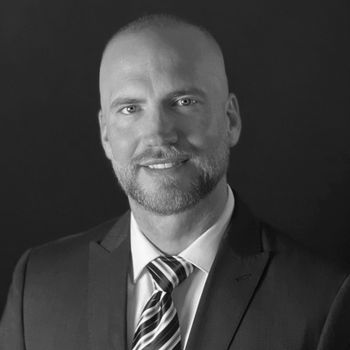PROF. GARRETT: Why I’m helping California move beyond DEI
Meaningful reform must come from outside the current system. That's why I launched the California Curriculum Center as a resource for charter schools and independent educators.
A former tenured professor at Bakersfield College, Matthew Garrett is the founder of Renegade Institute for Liberty, an organization dedicated to promoting intellectual diversity. He launched the California Curriculum Center shortly after retiring from academia to offer nonpartisan curricula for independent educators and charter schools.
A major college accreditation agency recently announced timely plans to strike Diversity, Equity, and Inclusion (DEI) standards from its criteria for California and Hawaii schools. This decision follows a damning report from Rutgers University and Harvard University researchers, who found that DEI programming often exacerbates the hostility it claims to address. And although longtime DEI advocates at the University of Michigan defeated a thrust to repeal their $250 million DEI bureaucracy, higher education awaits in trepidation of President-elect Donald Trump’s pledge to outright ban DEI.
These developments signal a broader reckoning with DEI’s failures—one that comes as no surprise to those of us who’ve spent years in higher education. I’m a former history professor, and I know why DEI must go.
In 2010, I joined Bakersfield College in California, served on committees, took on leadership roles, and repeatedly won elections to campus-wide governance positions. Together, we reduced time to graduation, raised course completion rates, and closed achievement gaps by improving student performance at our Hispanic-serving institution. I was fortunate to enjoy the last good years at Bakersfield College.
But in 2013, our Board of Trustees hired Sonya Christian as college president. She brought in Nicky Damania to direct Student Life, and he introduced DEI-inspired “Safe Space” office signs, dividing the campus into ideological camps. In 2015, Christian personally launched the Social Justice Institute, embedding identity politics into campus culture.
After Donald Trump’s 2016 election, Christian stoked fears of mass deportations. By 2018, exasperated faculty and I formed the Renegade Institute for Liberty to promote open dialogue and question increasingly radical policies. We hosted lectures, organized small group readings, and engaged difficult conversations in campus committees. Our efforts were met with whisper campaigns and campus-wide emails filled with baseless allegations, a precursor to the coming storm.
The George Floyd riots of summer 2020 triggered a seismic shift in academia, ushering in a near-religious devotion to “anti-racism.” Fueled by Critical Race Theory’s assertion that any disparity in outcomes is evidence of systemic discrimination, California adopted sweeping changes. High school standards were diluted, standardized admissions tests eliminated, and remedial math and English courses disallowed on college campuses. At the same time, faculty were warned “not to ‘weaponize’ academic freedom and academic integrity as tools to impede equity.” Rigorous standards gave way to an imposed equality of mediocrity.
At Bakersfield College, President Christian demanded “racial equity” and oversaw administrators pledging eerily scripted support for DEI initiatives. The college district followed her lead, funneling hundreds of thousands into DEI trainings (here, here, here, and here), designated April as DEI Appreciation Month, imposed hiring quotas, and promoted racially segregated programming.
When Renegade Institute faculty joined the college diversity committee to question these policies, the powder keg exploded.
In October 2022, Professor Paula Parks used class time to organize students from her segregated English course to fabricate false allegations against me and others attending that committee. Parks led her students to public meetings to hurl these accusations, interviewed with local media, and wrote an op-ed calling for my dismissal. My college district’s Board of Trustees joined in, with one member suggesting I be sent “to the slaughterhouse” and others hackling in approval.
In January, a covert recording surfaced and exposed the Paula Parks’ accusations as pure fiction, yet the administration doubled down. Dean of Students Nicky Damania escalated the rhetoric, addressing the Board to publicly and recklessly compare me to bigoted mass shooters, calling on the Board to take action. Soon after, then-Chancellor Sonya Christian presented formal charges to the Board who voted to seek my dismissal. Fortunately, my tenure held, and I was ultimately vindicated in a lengthy court battle and headline-setting settlement.
The entire debacle was ugly and exhausting, but the true cost extends far beyond me. Taxpayers shoulder the financial burden of DEI, while faculty, staff, and students report a “toxic” culture in its wake. Under Christian’s leadership, a once collegial, student-centered campus was reduced to a dysfunctional DEI disaster zone, even as Christian ascended to lead the entire California Community College System.
These experiences taught me that meaningful reform must come from outside the current system. Despite legislative pressures, many institutions are merely rebranding DEI initiatives, retaining the same staff and agendas under less obvious labels.
That’s why I launched the California Curriculum Center, a resource for charter schools and independent educators. We provide rigorous, state-aligned courses and print materials unencumbered by the divisive identity politics that consume so many educational institutions. We began with the most contentious of all mandates: California’s new ethnic studies requirement. At the California Curriculum Center, students will enjoy courses focused on subject matter and skills development, not ideological advocacy.
America’s educational system stands at a crossroads. The failures of DEI are undeniable, but undoing the damage will take time and courage. In the meantime, parents and educators must seek pathways to ensure students receive the quality education they deserve. The California Curriculum Center is one such alternative—a modest but determined step toward restoring excellence in education.
Editorials and op-eds reflect the opinion of the authors and not necessarily that of Campus Reform or the Leadership Institute.

